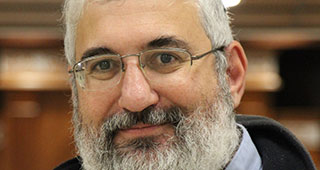Beit Midrash
- Shabbat and Holidays
- Jewish Holidays
- Sukkot
The Torah study is dedicatedin the memory of
Hana Bat Haim
One could simply say that the Torah is interested in ecological conservation. Instead of cutting down trees to make fancy schach, we use what is available and would otherwise be discarded. Without rejecting this possibility, we can suggest a more spiritual variation of this theme.
A basic explanation of the idea behind living in a sukka is that it shows our belief that our protection does not come from the strong, permanent house we build. Rather Hashem can protect us in a flimsy dwelling, as He protected our forefathers in the desert. The "festival of the harvest" element of Sukkot (see Shemot 23:16) conveys a theme of thanks for present-day bounty, and the choice of schach may broaden the scope of the thanks. We recognize the good not only of the principle produce, but we demonstrate that we can use even the by-products of that which we grow with Hashem’s help. We should be thankful for even the minor things that are apt to be overlooked. In addition to showing our thanks for agricultural leftovers, we also demonstrate that every little thing can be used for a mitzva. We can use all of our physical resources for worthwhile matters. By means of extension, we can note that we can use all of our personal traits for a mitzva or for our avodat Hashem, in general.
If we take this approach, we can continue with a homiletic analysis of not only what can be used for schach but also that which cannot be used. Schach cannot be still connected to the ground. From a practical perspective, that which is connected is probably intended to continue growing and producing. It would be wasteful to cut such a thing down and use it for a seven-day period. From a spiritual perspective, we may have attributes or attainments that we could use now but are better utilized if we allow them to develop more and "harvest" them later. For example, both in secular and sacred study, there are times that one pursues advanced degrees instead of hurrying to the work place to apply that which was learned on a lower academic level. Furthermore, things that can become tameh (impure) are unfit. This consists mainly of things that are already processed or ready for use. In our sukka we want that which has not been defined for a given purpose, but is open for exploration as to its appropriate use. Indeed, the sukka teaches us to keep our minds open to creative utilization of unknown or under-appreciated, physical and/or spiritual resources.





















